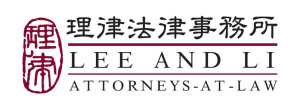Examining developments in cryptocurrency law around the region is like taking a litmus test to measure the flexibilty and depth of competency of these legal systems. staying up to speed is crucial
Navigation:
Philippines | South Korea | Taiwan | Thailand
At the time of writing this article, there are no blockchain specific laws and regulations in Taiwan. However, with the rise of blockchain applications such as virtual currencies or cryptocurrencies, Taiwan’s regulators have noticed the trend and have issued several press releases to state their positions and policies towards these digital products, as well as educate and warn the general public in Taiwan.
On 30 December 2013, the Central Bank of the Republic of China (Taiwan) and Taiwan’s Financial Supervisory Commission (FSC) jointly issued a press release expressing the government’s position towards bitcoin. According to the 2013 release, the two authorities held the position that bitcoin should not be considered a currency, but a highly speculative digital virtual commodity.

Partner
Lee and Li in Taipei
Tel: + 886 2 2183 2232
Email: abesung@leeandli.com
In 2014, the FSC issued another press release and ordered that local banks must not accept bitcoins (e.g., as a payment means or deposits) or provide any services related to bitcoins, such as exchange bitcoins for fiat currency. On 19 December 2017, the FSC further issued a press release to reiterate the government’s stance as specified in the 2013 and 2014 releases.
Given the above, in particular the authorities’ attitude, bitcoin is not considered legal tender, currency, or a generally accepted medium of exchange under the current regulatory regime in Taiwan. Instead, bitcoin is deemed as a digital virtual commodity. Please note that the 2013 and 2014 releases only indicate the government’s attitude towards bitcoin, instead of any other types of virtual currency or cryptocurrency.
However, the authors tend to think that any other virtual currencies or cryptocurrencies, providing they have the same nature and characteristics as bitcoin, should also be considered as digital virtual commodities.
Token offerings

Associate partner
Lee and Li in Taipei
Tel: + 886 2 2183 2162
Email: eddiehsiung@leeandli.com
It is generally considered that, from a Taiwan law perspective, for virtual currencies or cryptocurrencies other than bitcoin, the core legal issue concerns the securities law – that is, whether an initial coin offering (ICO) or other investment activities regarding virtual currencies or cryptocurrencies would be considered issuing “securities” under Taiwan’s current securities law regime.
In the 2017 release, the FSC also indicated the following views on the rising size of ICOs and other investment activities regarding virtual currencies and cryptocurrencies:
An ICO refers to the offer and sale of virtual commodities such as digital interests, digital assets or digital virtual currencies to investors. Whether the issue of ICO tokens would be deemed securities under Taiwan’s Securities and Exchange Act (SEA) would depend on the relevant facts of each individual case. When an ICO token has the nature of securities, its offering will be deemed a securities offering, and thus subject to the SEA; and
In case any misrepresentations or promises of unreasonably high returns are used by the issuer of virtual currencies or an ICO to attract investors, the issuer would be deemed as committing fraud or illegal fundraising.
The FSC expressed its view that one would need to analyze whether any ICO (or other types of token offering such as private token pre-sale, before the ICO stage) would be considered issuing securities under Taiwan’s SEA. Under current Taiwan law, the offer and sale of securities in Taiwan, whether through public offering or private placement, are regulated activities and should be governed in accordance with the SEA and its related regulations, as well as relevant rulings issued from time to time by the FSC.
The term “securities” is defined broadly, and at the same time vaguely, in Taiwan. According to article 6 of the SEA, securities could mean government bonds, corporate stocks, corporate bonds, and other securities approved by the competent authority, and any stock warrant certificate, certificate of entitlement to new shares, and certificate of payment or document of title representing any of the above securities should be deemed a security.
Additionally, according to a recent Taiwan Supreme Court opinion, a contract or agreement might be considered a security under the SEA if it has monetary value and the nature of investment and transferability. However, the authors think such previous Supreme Court views should be considered to be focusing on traditional types of securities, and the emerging digital assets might not be easily categorized based on the elements discussed by the Supreme Court previously.
Security tokens, proposed regulations
As described above, theoretically speaking, for offer and issue of any tokens with the nature of securities – which are commonly called security tokens, and their offerings commonly called security token offering (STOs) – prior approval from, or registration with, the FSC would be required under the SEA.
However, although it was advised in the 2017 release that any STO should be subject to the SEA, currently the SEA and its related regulations have not set out the relevant rules governing the application for such prior approval or registration. In other words, as at the time of writing this article, no regulatory process is available in Taiwan for prior approval or registration.
Despite this, according to relevant news reports, in response to advocates from the blockchain and cryptocurrency industries, the FSC announced that it is planning to launch a set of new regulations for the issuing of security tokens to fill up the void. For this purpose, the FSC held a public hearing on 12 April 2019, inviting views and opinions from industry experts on the proposed regulations of security tokens. In the public hearing, the following points, among others, were discussed and proposed to be included in the prospective new regulations:
To expressly define security tokens as securities under the SEA;
To set an upper limit on the total amount of an STO programme (STO programmes exceeding the limit may need to be tested in Taiwan’s regulatory sandbox);
To set qualifications of the buyers of security tokens;
To set an upper limit on the amount of security tokens that an investor may purchase and hold;
Taipei Exchange to draft regulations governing the security token offering, including the relevant requirements and conditions such as required documents and information disclosure; and
To allow securities dealers (as registered with the FSC) to serve as a security token trading platform (i.e., the securities dealer should act as a counterparty for all security token trading). The minimum capital for a securities dealer might be lower than that of a conventional security dealer if it only operates the platform for security tokens.
As of now, relevant details of the draft regulations are still under discussion and not yet published; according to relevant news reports, it is expected that such regulations will be announced in June this year.
Anti-money laundering
The latest amended Money Laundry Control Act (AML Act) of Taiwan, which took effect on 7 November 2018, has brought the cryptocurrency platform operators into the anti-money laundering regulatory regime.
However, as of now, how it will be implemented and what requirements will be imposed by the FSC (which is the main regulator of Taiwan AML Act) are not clear in terms of anti-money laundering regulation of cryptocurrency exchanges and platforms.
LEE AND LI ATTORNEYS-AT-LAW
7/F, No 201 Tun Hua N. Road
Taipei, Taiwan 10508, ROC
Tel: +886 2 27153300
Fax: +886 2 25149841
www.leeandli.com




























